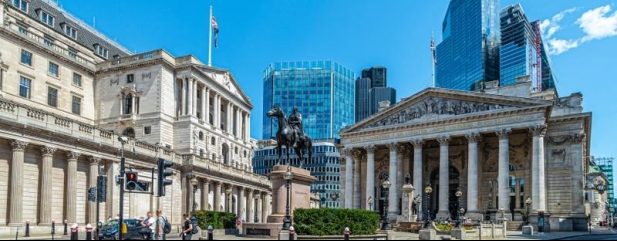Archived article
Please note that tax, investment, pension and ISA rules can change and the information and any views contained in this article may now be inaccurate.
How stocks perform after the first rate cut in the cycle

It may have been overshadowed since by significant market volatility but, widely expected as it was, the Bank of England’s decision to cut interest rates for the first time since 2020 represents a significant inflection point.
And with the usual caveat that the past is not a guide to the future, investment bank Berenberg has done some useful work on the average performance of the UK market in the wake of the first cut in each interest rate cycle over the last five decades.
The results make for pretty positive reading if you are invested in UK shares. Averaged out, the performance after the first rate cut has been appreciably better than the all-time average on a one-, three-, six- and 12-month view.
There is considerable variation within that average, reflecting the fact rates can be cut for a variety of reasons including in the wake of significant market shocks like the Covid pandemic or 2007/8 financial crisis.
Berenberg analyst Jonathan Stubbs notes the latter represents the lowest extreme on the rate cut continuum, with a 37% fall for UK equities following the first cut in 2007, while at the top end in 1976 the first cut heralded a 56% gain.
Stubbs adds: ‘We think rate cuts, alongside reduced political uncertainty, net inflows into UK equities, cheap valuations and modest earnings growth should support UK equity returns over the coming 12 months.’
His economist counterparts at the bank believe there will be a further 150 basis points worth of cuts through to the end of 2025 bringing rates down to a terminal rate of 3.5%.
It is worth flagging a few points of caution here. There is a chance, albeit modest, that the largely positive market reaction to Labour’s decisive victory in last month’s election could be diluted by the recent far-right violence in the UK. Second, the trajectory of rates may not prove as smooth as expected if, for example, there were to be a renewed uptick in inflation.
Finally, as my colleague Ian Conway pointed out in this column last week, corporate results are likely to be a more reliable delineator of market returns than what happens with rates.
While we’re on the subject of interest rates, calls for the Federal Reserve to introduce an emergency cut in response to the recent market weakness seem massively overblown and could well prove counterproductive.
Events could conspire to force the Fed’s hand but, for now, such a move would probably do more harm than good as it would only add to a sense of panic. While the factors behind the correction in stocks should not be dismissed, it is also true to say summer sell-offs are not unusual amid thinner trading as a large number of market participants are on the beach.
Important information:
These articles are provided by Shares magazine which is published by AJ Bell Media, a part of AJ Bell. Shares is not written by AJ Bell.
Shares is provided for your general information and use and is not a personal recommendation to invest. It is not intended to be relied upon by you in making or not making any investment decisions. The investments referred to in these articles will not be suitable for all investors. If in doubt please seek appropriate independent financial advice.
Investors acting on the information in these articles do so at their own risk and AJ Bell Media and its staff do not accept liability for losses suffered by investors as a result of their investment decisions.
 magazine
magazine








